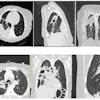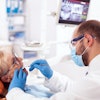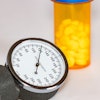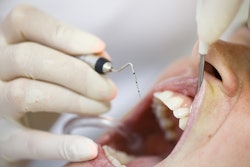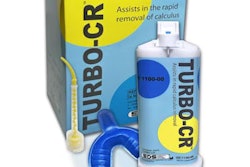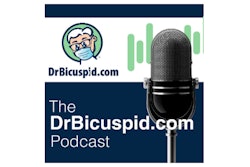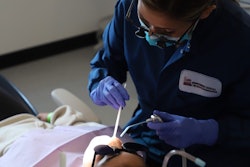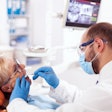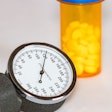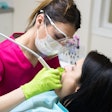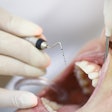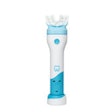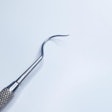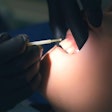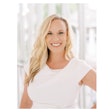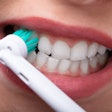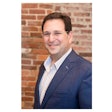With five states allowing or considering allowing dental assistants to perform supragingival scaling on healthy patients, numerous concerns have been raised about the implications of this recent development in dental hygiene.
While the answer seems to depend on which side of the fence you are on, it will, no matter what, bring about changes in how dental hygiene is practiced. Many voices are now arguing that a dental hygienist’s role can be altered after completing all the education, training, and licensure processes required of this profession.
One of the biggest concerns registered dental hygienists (RDHs) have revolves around their patients. Many argue that the public may not understand the difference between an oral preventive dental assistant (OPA) and an RDH. Since their education, training, licensure, and skill set are vastly different, the public has the right to be told what or who could be working in their mouth the next time they visit the dental office for a “cleaning and checkup.”
Thus, the Oral Health Awareness Project (OHAP) was created a few months after multiple states agreed to allow OPAs in their operatories.
I recently sat down with Lisandra Maisonet, RDH, the founder of OHAP, in the hopes of educating others about the organization's mission and membership.
Tracee Dahm: What inspired the founding of your organization, and what unmet needs are you trying to address?
Lisandra Maisonet: The OHAP was born out of both urgency and conviction. As a degree-holding RDH, I began seeing a disturbing trend -- our profession, particularly the role of the RDH, was being minimized in public perception and policy.
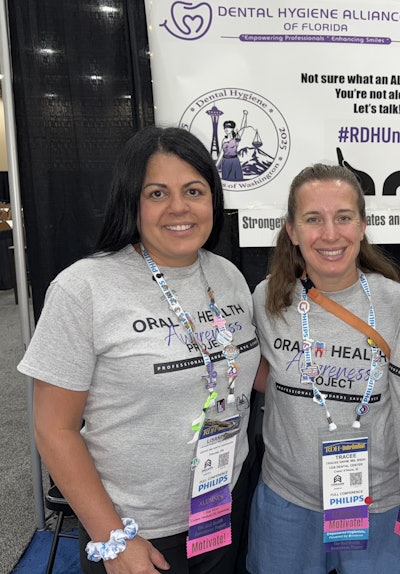 Lisandra Maisonet, RDH, (left) and Tracee Dahm, MS, RDH (right). Tracee Dahm.
Lisandra Maisonet, RDH, (left) and Tracee Dahm, MS, RDH (right). Tracee Dahm.
Efforts were underway in several states to introduce lesser-trained providers, and the public and our legislators have a minimal understanding of the critical, lifesaving care that RDHs with a degree that requires nearly 3,000 hours of education provide.
On a personal level, this mission is deeply rooted in my calling to serve. I felt a strong inner need to stand up -- not just for myself and my colleagues -- but for the safety and well-being of the patients we are educated to protect. I wanted to create something bold and unapologetically professional that would raise awareness, educate the public, and influence legislative conversation.
At its core, this organization exists to fill the need for unified, professional, and visible advocacy that genuinely reflects the value of the licensed degree-holding dental hygienist. And we won’t stop until we achieve the respect, recognition, and protection this profession deserves.
What strengths or experiences does your leadership team bring to this cause?
The task force behind the OHAP (OHAP) is a powerhouse of passion, experience, and purpose. We are composed of seasoned dental professionals, educators, speakers, and advocates who bring decades of hands-on clinical, academic, and leadership experience to the table. Each member understands the critical role degree-holding licensed RDHs play in preventative and systemic health, and they’ve lived it.
What sets this team apart is our diverse expertise paired with a shared mission. We are strategists, communicators, and connectors committed to elevating our profession through public education, legislative engagement, and unified advocacy. We understand both the clinical trenches and the political landscape, which allows us to craft messaging that is not only accurate but also impactful.
Most importantly, the team brings heart. Every person on this task force is here because they care deeply about protecting the integrity of dental hygiene, and they’re willing to take bold action to make that happen. We’re not here to maintain the status quo -- we’re here to change the narrative.
How are you securing funding, and what’s your approach to long-term sustainability?
This group was launched as a grassroots initiative, powered by the very professionals it represents. Our initial funding came through a one-time membership campaign, inviting licensed RDHs across the country to contribute toward the first four months of a national public relations campaign and the hiring of Matter Communications, a PR firm.
For long-term sustainability, our strategy is twofold. We are continuing to grow our membership base with a focus on educating RDHs about the urgency of our mission and the impact of collective action. The more RDHs who contribute, the more intense and lasting our efforts will be.
Next, we are seeking support from industry leaders, educational institutions, and like-minded organizations that understand the importance of preserving high standards in dental care. These partnerships will help to diversify our funding and expand our reach.
Ultimately, we are building a self-sustaining movement, one that is transparent, mission-driven, and fueled by professionals who are ready to protect the future of dental hygiene. Sustainability starts with unity, and we are proving that, together, we are more than capable.
What do membership perks entail?
Becoming a member of OHAP isn’t just about joining a cause, it’s about fueling a movement to protect and elevate the dental hygiene profession. Some of the membership perks include direct contribution to PR advocacy.
Membership helps fund our professional campaign through Matter Communications, focused on educating the public, media, and legislators. Members receive full access to press releases, infographics, social media content, public service announcements, and legislator talking points that are ready to share in your community or for use during advocacy efforts. We will also include guidance on setting up legislative meetings and equipping our members with professionally branded handouts.
As a member, regular updates will be shared on how contributions will be used, including access to campaign metrics and financial transparency reports. One of the most essential membership perks is an investment in the future of our profession.
Has the PR firm outlined how it will assist RDHs?
Yes, Matter Communications has provided a clear blueprint how they will support RDHs and elevate public awareness of our profession. Their strategy includes media outreach and press coverage, along with professional messaging and branding, as well as the creation of legislative tools tailored explicitly for advocacy to provide RDHs with the necessary tools when meeting with legislators. Additionally, they are helping produce digital and printed public service announcements aimed at educating the public about the importance of seeing a CODA (Commission on Dental Accreditation) degree-holding RDH and the risks of lowering education standards.
Additionally, they will roll out shareable graphics, videos, and storytelling content to reach a wider audience online, empowering dental hygienists to amplify the message in their networks.
What other organizations are supporting OHAP?
We have had several organizations join our efforts. We had amazing door prizes to give out from Oral Cancer Consulting, PerioProtect, Crown Seating, Pac-Dent, Twice As Nice Uniforms, Rise Uniforms, Phillips Sonicare, and All Things Toothy. We have also had several companies join as contributing members, such as CE Zoom and AndyRDH from Dental Hygiene Academy.
What short-term goals are you working toward, and how will you measure them?
Our immediate goal is to fully fund and execute the first six months of our national PR campaign through Matter Communications. We aim to educate the public on the vital role of a CODA degree-holding RDH in systemic and preventive health care, highlighting the risk of lowering educational standards.
We will measure our success by the number of earned media placements, article shares, interviews, and public reach, all of which will be tracked through Matter’s PR reporting tools.
Membership growth will also significantly impact our success, particularly in states facing legislative threats. Our growth in website traffic, social media reach, video views, and public shares of our educational materials will help measure public engagement.
Additionally, the number of states actively engaged in OHAP-led grassroots efforts will be a positive indicator of the movement's effectiveness.
Do you have to be an RDH to be a member of OHAP?
No, you do not have to be an RDH to be a member of OHAP. While our mission is centered on protecting and promoting the role of the degree-holding RDH, we welcome anyone who supports high standards in dental care for patients and believes in the value of preventive oral health. Anyone who believes in our cause is welcome to join, contribute, and help spread the message.
Every supporter strengthens our movement. Together, we are building a unified voice that protects the future of dental hygiene but, most importantly, safeguards public health.
What tip/advice do you have about gaining more members/funding?
People are drawn to purpose. We must communicate why our mission matters and how membership directly contributes to real change. We will continue to use repeated calls to action across platforms, offering multiple membership tiers to help and remove the barriers to membership.
Most importantly, we know transparency builds trust. Our members want to see that their support is making a difference now, not just talking about the future. We will ensure that we communicate our progress so that everyone is informed.
We will also work to set up mini-goals and countdowns to help us reach our goal. We want to create a movement that encourages others to join in on the change.
Finally, we will continue to expand our outreach to gain more support from companies that are also at risk of being affected by changes in legislation. We can’t deny the fact that a lowering of educational standards will also lower the level of care being provided, making it less likely to accommodate advanced modalities in keeping diseases at bay.
Where can I become a member, and is the webinar available on demand?
You can sign up on the membership page of our website, where you will find tiered options. Each of these levels allows the member to contribute the minimum amount or set their own desired amount to give.
To learn more about the project, you can visit our Facebook page, The Oral Health Awareness Project, and watch our kickoff recording, as well as our updated recording. We will have more recordings with updates as we continue to progress with our PR firm.
Tracee S. Dahm, MS, RDH, is an adjunct clinical instructor for the North Idaho College School of Dental Hygiene in Coeur d’Alene, ID. She also works in private practice. Dahm has published articles in several dental journals, magazines, and a textbook. Her research interests include trends in dental hygiene and improving access to dental care for the underserved. She can be reached at [email protected].
